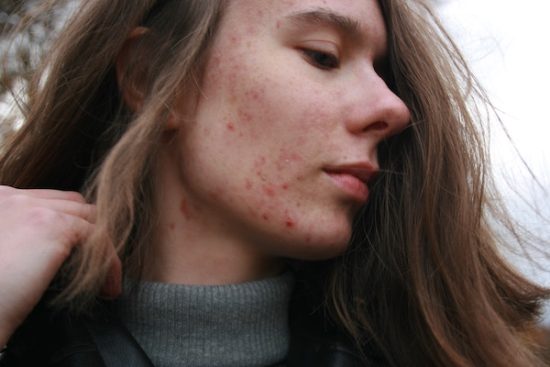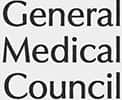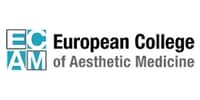
If you suffer from cystic acne, it can impact your confidence, self-esteem and relationships. Not only is it painful, cystic acne can be especially difficult to treat and take a long time to clear up. Worst of all, it can leave scars that can last for a very long time or even be permanent.
Our London aesthetic clinic offers a wide range of skin treatments and understands cystic acne is a medical issue. In this post, we cover the key information you need to know about cystic acne, how to get diagnosed and the various options available to treat acne and scars.
Cystic acne is a severe form of acne that causes cysts in the dermis (middle layer of skin). It happens when pores in your skin, which are small openings that surround a hair follicle and allow the skin to “breathe” become blocked. Sweat, dirt, oil and dead skin cells can easily clog up a pore and trap bacteria. This results in inflammation and eventually the development of a pus-filled cyst which can be felt beneath the skin.
These cysts are called cystic acne and are not the same as pimples, which are simply raised spots in the epidermis (top layer of skin), often called white and blackheads. Cystic acne is commonly found where the skin has more oil glands. Typically this is on the face, neck, chest, upper arms, shoulders, back and buttocks.
Cystic acne and nodular acne are similar to one another. Both cases result in tender or painful bumps beneath the skin’s surface. Furthermore, either may leave scars. The difference is an acne cyst is filled with pus, which makes them more malleable. Because they do not contain fluid, acne nodules tend to be hard and feel more resistant than acne cysts.
Although the cause of cystic acne is the process explained above, there are four key reasons you may suffer from cystic acne:
1. Genetics — unfortunately, if other family members also suffer from cystic acne, you may be more genetically disposed to develop cystic acne.
2. Excessive sebum production — when your skin produces excessive sebum (the oil the skin emits), pores are more likely to become clogged and trap dirt, skin cells and bacteria.
3. Sebaceous follicle keratinisation — in cases where your skin cells create excessive protein keratin (a disorder known as hyperkeratinisation), you are more prone to develop acne, especially cystic acne.
4. Hormones — often trigger cystic acne in women, especially if you also have polycystic ovarian syndrome (PCOS).
Determining whether you have cystic acne on your own can be difficult. If you have any of the above symptoms, the easiest way to get a diagnosis is to visit your GP.
Your GP may also be able to prescribe you cystic acne treatments, including:
• Oral antibiotics — a four to six-month course of antibiotics can be effective if you have been suffering from cystic acne for a long time.
• Topical antibiotics or retinoids — creams, gels or lotions that you apply directly to the infected areas of the skin.
• Azelaic acid (Azelex®, Finacea®) — is available in cream, gel or foam formulations and is applied to the skin where you can feel the inflammation, redness and swelling.
• Combination birth control pills are another treatment option that can be especially effective for hormonal cystic acne treatment when symptoms are worse around your menstrual cycle or if you have been diagnosed with PCOS.
The best cystic acne treatment will vary from person to person. Whichever treatment you have for cystic acne,it will generally take around six weeks to start to have an effect. Generally, you will need to use the treatment for three to six months before the acne cysts completely clear up, and acne scars can be permanent. If you respond well to the combined contraceptive pill, your GP will likely recommend you remain on it.
When your cystic acne is extremely severe, you may be referred to a dermatologist who can offer you the following:
• Injections of corticosteroids — corticosteroid injections can be administered into individual cysts, which decreases discomfort and inflammation and helps to reduce big uncomfortable acne cysts rapidly.
• Incision and drainage — creating an opening into an acne cyst for fluid drainage. This is usually only performed in very severe cases, as it increases the risk of scarring.
Several treatments can be utilised to reduce the appearance of scars and hyperpigmentation caused by cystic acne. Some of the most popular options include:
Laser Resurfacing — may be beneficial with certain forms of acne-related pigment change. Although the results should remain over an extended period, they are not necessarily permanent, and the discolouration may return after several months.
Micro-Needling — skin needling can be performed with various tools. At our clinic in London, we use the Dermapen Medical with a CE-marked, disposable medical grade 12 needle cartridge that the EU and FDA have approved. Several studies have indicated that micro-needling treatment can trigger natural collagen production through natural wound repair reactions. You will generally require three to five treatments for the most noticeable benefits in conditions such as acne scars.
To supplement the treatment, you can also purchase a home derma roller pack which may be used up to three times per week. This includes a collagen booster gel to optimise the appearance of your skin.
Chemical Peels — a medium peel can be used for treating mild scarring. It also has the benefit of reducing enlarged pores and oil production. Also, a chemical peel can be performed when you have active acne.
You should never try to pop an acne cyst. This could cause the fluid to spread into the surrounding skin and lead to a skin infection called cellulitis, which can be extremely painful and serious if not treated immediately.
Cystic acne may cause changes in the skin pigment and leave dark red, brown or purplish spots, which can take up to a year to fade.
Although you can’t prevent cystic acne, you can reduce the risk of pores becoming blocked by using oil-free skin products and makeup. You should also ditch your flannels or sponges, which can harbour bacteria, and only use your hands when you wash your face and body.
For more information about treatment for cystic acne and scarring, contact us to arrange a no-obligation consultation to find the best treatment for your specific requirements at our Harley Street clinic in London.







